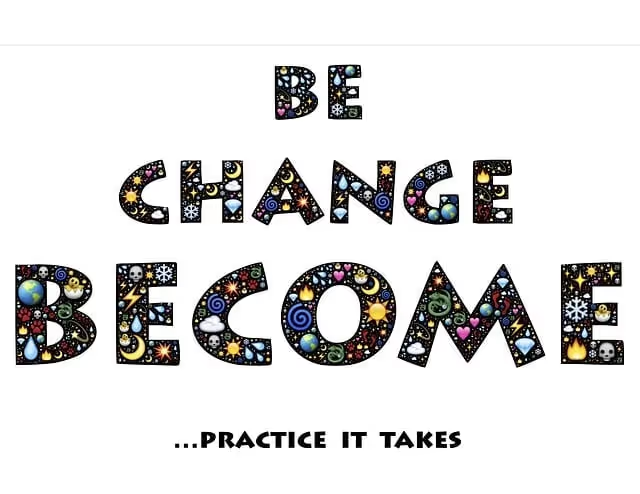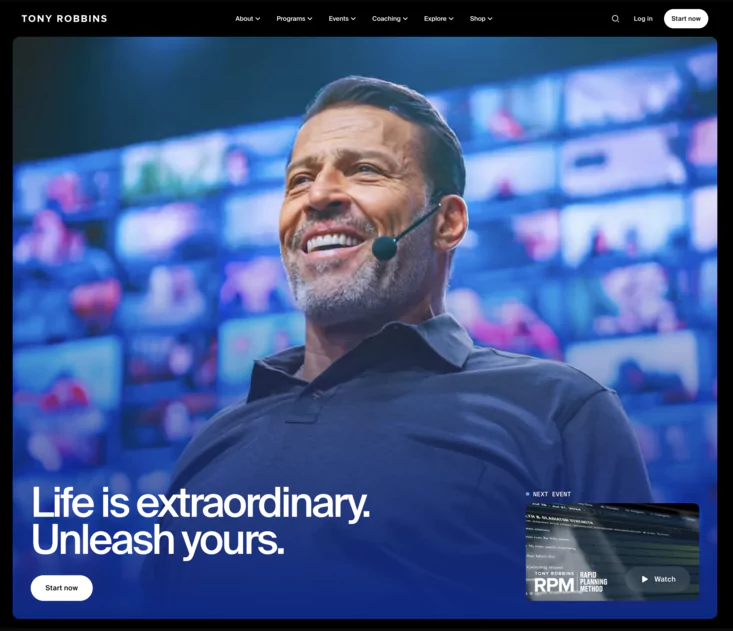Who is personal branding useful for?

The Personal branding is relevant for:
- Employees : Stand out for a promotion or a change of position.
- Self-employers/Entrepreneurs : Attracting customers through a professional identity strong.
- Freelancers : Carefully manage their image and communication to stand out from the competition, especially through social networks and their online presence.
- Students/Young graduates : Gain credibility to get your first job.
- Executives/Managers : Establishing a position of opinion leadership in their sector.
For freelancers, it is also essential to create a personal and coherent blog in order to demonstrate their expertise, communicate their personal brand and attract customers.
Personal Development: A Pillar of Personal Branding 🌱
The personal development plays a central role in the construction of a personal brand solid and authentic.
All individuals, regardless of their background, can build their own personal brand and thus strengthen their credibility with their audience.
82% of professionals believe that continuous self-improvement is important for their career, working on your skills, values, personality and valuing your interests makes it possible to differentiate yourself in a saturated job market.
This section explores how personal development supports the Personal branding, by aligning your communication strategy with your strengths and the expectations of your target audience.
Why is personal development essential?

There are reasons to get to know each other better and to strengthen your assets in order to stand out.
By cultivating your skills and valuing your experiences, you build a personal brand that inspires trust and credibility, whether it's to sell your products or attract the attention of recruiters.
One e-reputation Forte is based on authenticity that reflects your values and personality, while meeting the needs of your audience.
How do you integrate personal development into your personal branding?

- Identify your skills and experiences : Analyze your professional and personal strengths to define your added value.
- Action : List your key skills (e.g. project management, communication) and illustrate them with concrete experiences (e.g. management of a successful marketing campaign).
- Tool : Use a test like CliftonStrengths to clarify your talents.
- Create engaging content : To strengthen your expertise and differentiate yourself, it is essential to communicate your products or services.
- Highlight your values and personality : A coherent personal brand is based on clear values (e.g. integrity, innovation) and an authentic personality.
- Understanding the needs : An effective communication strategy must meet the expectations of your audience (recruiters, customers, peers).
- Investing in continuing education : Develop your skills through online courses (e.g.: Udemy, Coursera) or reading to stay relevant.
Practical advice
- Set clear goals : For example, improve your audience speaking in 3 months.
- Ask for feedback : Ask your network for feedback on your brand image.
- Practice regularly : Participate in webinars or Meetups to hone your interpersonal skills.
- Stay authentic : A personal brand should reflect who you are, not a facade.
Personal development is the foundation of a Personal branding successful.
By working your skills, by aligning your values and personality, and by responding to needs of your target audience, you create a professional identity that inspires and engages.
Invest in your growth to transform your career!
The power of storytelling in personal branding

Storytelling has become an essential pillar of personal branding.
By telling your story, you reach your target audience far beyond simple technical skills: you create an emotional connection that strengthens your brand image and your positioning in your sector.
Techniques to tell your story for Personal Branding 📖
The Storytelling is at the heart of Personal branding, allowing you to transmit your values, experiences, and personality in an engaging and memorable way.
Practical advice for developing your personal branding with effective storytelling
- Stay authentic : A heartfelt story creates a emotional connection and strengthens your e-reputation.
- Adapt to your audience : Talk about the problems or aspirations of your target audience (e.g. recruiters, customers).
- Be concise : A LinkedIn story should fit in 200-300 words, a TikTok video in 30-60 seconds, follow the rules of what works
- Use adapted platforms : Post detailed stories on LinkedIn or youtube, and short stories about instagram or TikTok. and create a website to develop your personal marketing
- Ask for feedback : Test your story with colleagues to refine your clear and consistent messaging.
In the digital age, the personal website has become an essential tool for any personal branding strategy.
A true online showcase, it allows you to highlight your personality, skills and experiences, while building a strong and coherent brand image.
Conclusion

Building a personal brand is a process, not an event.
Building your brand strategy requires a lot of work, dedication, and time. However, the benefits are immense and long-lasting.
First you need to find your unique superpowers. They can also be called your passions, your goal, or your”Elevator Pitch”.
Make a list of your top ten passions. These could be things that you are good at, that you love to do, that you get lost in, or that you Make money.
Start by focusing on creating quality content, networking with others in your field, and being authentic.
Social networks are a good starting point, but you should also create a website, because it is a must.
Once you have chosen a domain name, choose your web hosting, create a site map, and start planning your personal brand strategy.
This content strategy should include your unique value proposition, a site map to know what web pages you will need, blog post ideas, and a few strategies for digital marketing to get more visibility.
Just as you build authority in the real world, you need to focus on SEO And the guest blogging to create an online domain authority (DA).
Contrary to what one might think with the evolution of the web, the blog remains a key and lasting tool for personal branding.
Other recommended reading: To start building your personal brand, check out my free and easy guide to how to start a blog this year.
FAQS
What is personal branding?
Personal marketing is about promoting your skills, values, and personality to create a unique professional brand image that sets you apart.
Why is personal branding important?
It boosts your professional visibility, attracts opportunities (jobs, customers) and reinforces self-confidence thanks to a solid e-reputation.
Who can benefit from personal branding?
Employees, freelancers, entrepreneurs, students, managers: anyone who wants to enhance their professional identity and achieve their professional goals.
How do you start personal marketing?
Define your strengths, target your target audience, create authentic content on a website or social networks, and maintain a consistent communication strategy.
What tools should you use for your personal branding communication strategy?
LinkedIn for networking, Canva for visuals, Webflow for a website, and Metricool for analyzing community engagement.
How long does it take to build a personal brand?
3 to 6 months for a basic presence, 1 to 2 years for a strong online reputation with a regular communication strategy.
Is personal branding only for influencers?
No, it benefits everyone, from students to executives, to stand out to their target audience and achieve their goals.
How do you measure the success of your personal marketing?
Through engagement (likes, shares), opportunities (offers, collaborations) and feedback from your network on your website or social media.
How to identify your target audience for personal branding?
Analyze the needs of recruiters, customers, or peers using tools like Answer The Public or LinkedIn discussions to align your content.
What is the importance of a website in personal branding?
A website (e.g. via Webflow) centralizes your portfolio, blog and projects, strengthening your e-reputation and professional credibility.
Why highlight your values in personal branding?
Highlighting your values (e.g. integrity, innovation) makes your profile authentic, connects with your target audience, and strengthens the trust of recruiters or customers. Example: A design freelancer shares his commitment to sustainability, attracting eco-responsible businesses (Forbes).
What steps should you follow to build your online reputation?
- Identify your skills and added value.
- Create a profile on a platform like LinkedIn.
- Share experiences through content (posts, articles).
- Engage with your network for online visibility. Example: Post an article on Medium to show your expertise
How does personal branding help freelancers?
Freelancers use personal branding to highlight their skills and experiences, attracting customers via a website or platforms like Malt. A solid online reputation can increase contracts by 30% (Hinge Marketing).
What role does a website play in personal branding?
A site centralizes your information, products, or services, strengthening your reputation. It allows you to present your profile, your experience, and your added value to the world.
Example: A coach creates a site via Webflow for his training courses (Webflow).
How do recruiters use personal branding in their research?
In recruiting, they consult the online profiles of candidates to assess their skills and values. A well-constructed LinkedIn profile can increase opportunities by 40 (Scale.jobs).
Example: A person sharing case studies on LinkedIn gets a company's attention.
How do experiences shape the creation of a personal brand?
Sharing significant experiences (successes, failures) via posts or videos shows your added value and humanizes your profile. Example: A person tells on YouTube how they pivoted from employee to freelancer, inspiring their audience (Thinkific).
Does personal branding impact professional and personal life?
Yes, it builds self-confidence, clarifies your goals, and aligns your life with your values.
A strong reputation can open doors in the professional world and enrich your personal relationships (Teachable).

.svg)








